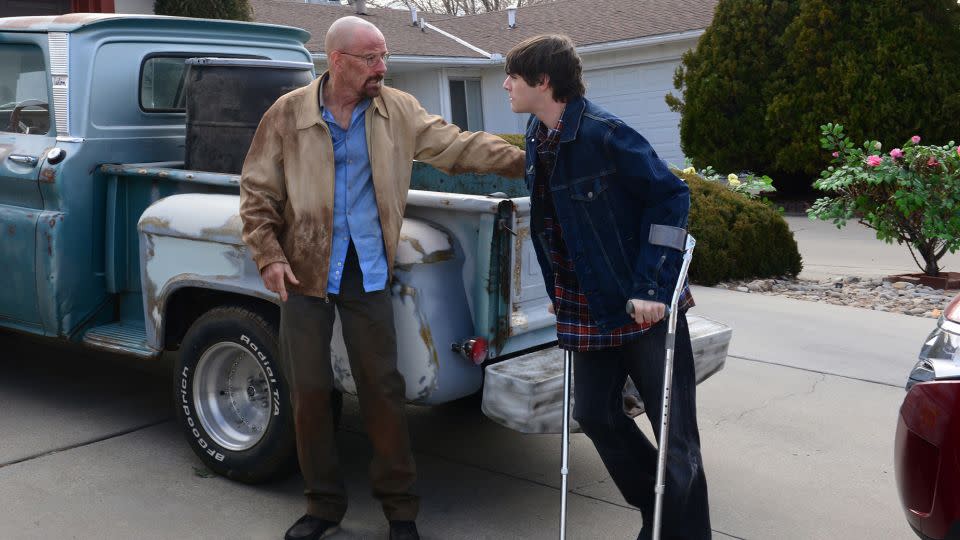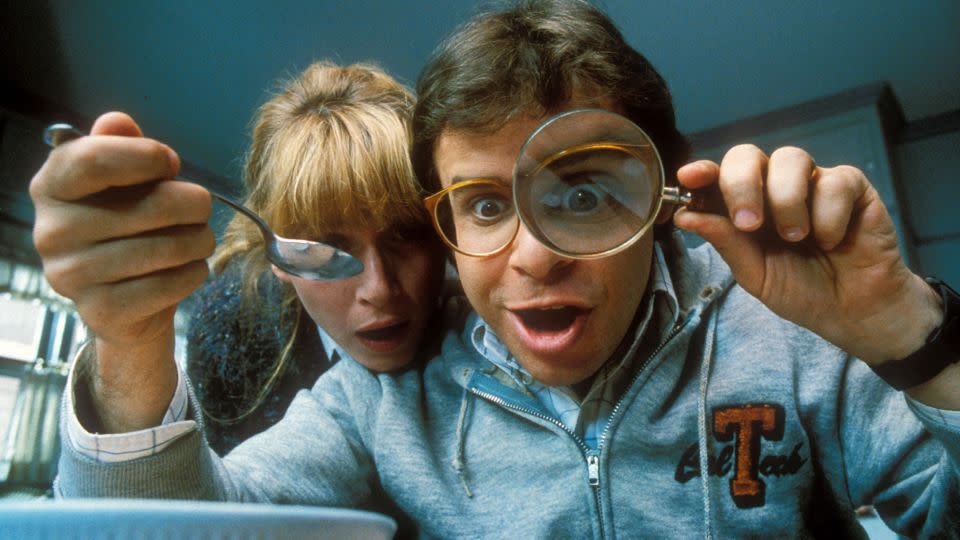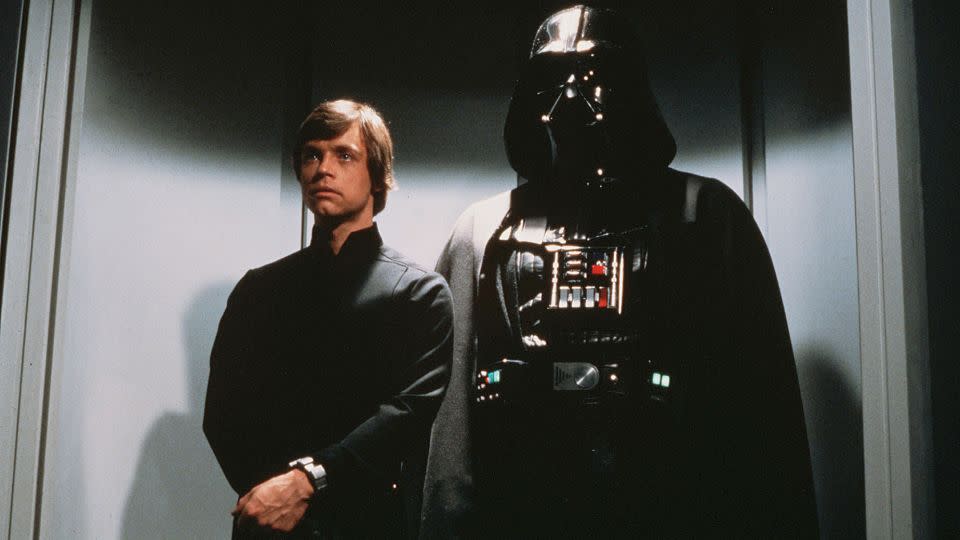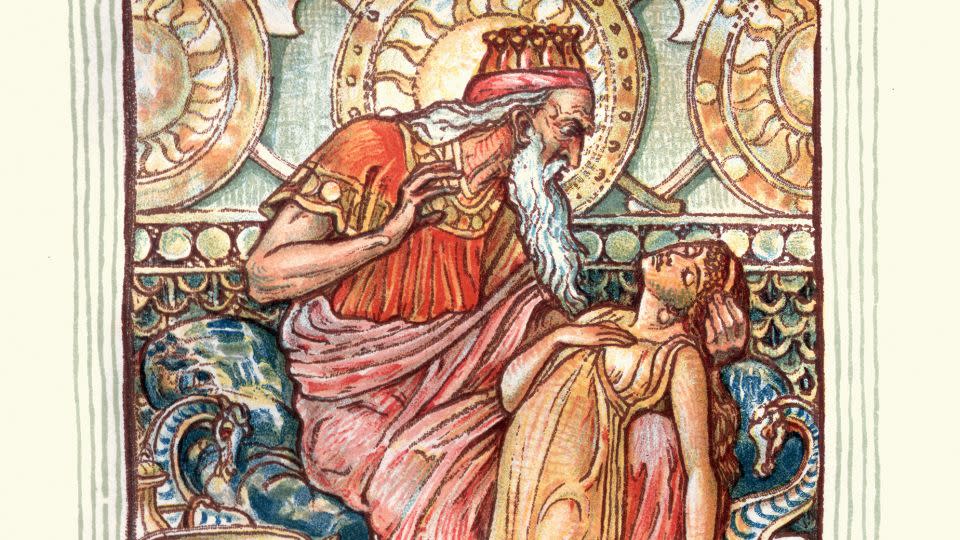Worried about your parenting skills? There are dads way worse than you
Get inspired by a weekly roundup on living well, made simple. Sign up for CNN’s Life, But Better newsletter for information and tools designed to improve your well-being.
Whether you’re a new or seasoned father, the anxieties of raising children can pop up anywhere, anytime.
What if I’m not meant for this? What if I stink at this “dad” stuff? What if my kids need something I simply can’t provide?
These fears are normal, and perfection is a myth. So try putting things into perspective and remember there are dads far worse than you, suggests comedy writer Glenn Boozan in her new book, “There Are Dads Way Worse Than You: Unimpeachable Evidence of Your Excellence as a Father.” The book, which Priscilla Witte illustrated, is a 10- to 15-minute read that dads and those who love them can knock out between tasks.
These problematic fathers include Thanos, the Marvel villain who pushed his daughter off a cliff, and Jack Torrance of Stephen King’s “The Shining,” who terrorizes his wife and son as his sanity deteriorates. (Fine, they’re fictional, but still, you are not them.)
The book is a natural follow-up to Boozan’s motherhood-focused counterpart, published in 2022. Her inspiration for a fatherhood version came from having a “really great dad” who, in the ‘80s when Boozan was growing up, was a stay-at-home father while her mother was the breadwinner, she said. “I’m always very proud to say that my dad was an extremely present and active part of my childhood.”
Fathers Boozan interviewed while developing her book often shared worries about whether they could provide enough resources for their families, be strong enough for them, protect them or teach them all the skills society typically associates with masculinity, she said.
“Also, just every dad I spoke to was like, ‘I’m worried that I’m gonna roughhouse too hard (and) they’ll get hurt,’” Boozan said.
Another common fear was “being cast as the villain in their kids’ lives,” she added.
Boozan said she hopes her book relieves, at least temporarily, these intense pressures many parents feel — especially in the modern age of parents’ attempts to be perfect.
“I want parents, in these moments of terror and fear and panic, to take a breath and say to themselves, ‘Oh, you know, it could be worse.’ I want parents to be nicer to themselves,” Boozan said. And “as a comedy writer, I’m biased, but I’m a big proponent of laughter as medicine. And I think taking a break from a stressful situation for a laugh can be a lifesaver.”
Here’s the lowdown on four other “bad” dads who might make you feel better about your parenting this Father’s Day.
Walter ‘Heisenberg’ White

“What if, at a barbecue, your ‘Grill Dad’ skills are green? As long as what you’re cooking isn’t methamphetamine,” Boozan wrote.
Walter White’s original intention was to provide for his family in the event of his eventual death from cancer — but that changed as his success got to his head. As if living a double life to be a meth kingpin wasn’t bad enough, White also got his teenage son drunk, left his infant daughter alone in the front seat of a fire truck and put his family’s safety at risk. The list goes on.
“By the end of the show, the things he’s done to protect his family are the very things that have put them in danger,” Boozan said.
Wayne Szalinski

“On days when you feel ‘Dad guilt’ about the things you did,” Boozan wrote, “at least you’ve never had to say, ‘Honey? I shrunk the kids.’”
Boozan chose to include Wayne Szalinski as a funny example of a father making a single huge mistake that had innocent intentions yet resulted in disastrous consequences, she said.
Darth Vader

“Oops! Forgot their bathtime? Mess up a midday snack? Better than a cauterizing lightsaber attack,” Boozan wrote, referring to a famous scene in the 1980 film “Star Wars: Episode V — The Empire Strikes Back.”
READ MORE: Overthinking the initiation into ‘Star Wars’ for our kids
“Cutting off your son’s hand is a pretty crazy dad error,” Boozan said. “That was why it was so important for the cover of the book to be Darth Vader, because everybody’s like, ‘Oh, I understand exactly what this book is going to be about.’”
King Midas

“Poor dad? Rich dad? In between? Nobody’s gonna care,” Boozan wrote. “Midas had the golden touch and look what happened there.”
The Midas myth is another case of worries about resources gone awry. Striving for success, he gets too greedy and accidentally turns his daughter into gold when hugging her.
“That’s a great example of a workaholic dad who thinks that amassing a trove of riches in order to pass that along to your child is the way of being a good dad,” Boozan said. “That’s a cautionary tale.”
‘Reach out for help’
Boozan’s book also touches on a difficult yet reassuring lesson most parents experience: that the responsibility and quality in parenting isn’t only in how much you’re able to protect them from danger and heartbreak but also in how you help them grow from those necessary rites of passage.
“The best thing my dad ever did … is he was a chill dad,” Boozan said. “He would let me explore and discover things on my own, encourage my curiosity and let me play with matches, run around the house and jump on the couch. And if I got hurt, then I learned not to get hurt.
“He wasn’t a helicopter parent,” Boozan added. “And I think that encouraged me to open up and grow as a kid.”
Boozan also emphasized the importance of fathers having healthy, open relationships with their own emotional and mental health — which can also influence a child’s well-being.
“He never shamed us for sharing our emotions and … there was no toxic masculinity in my house,” she said. “If you need it, reach out for help, whether that be emotional or otherwise. If the parent is in a good place, then they have the energy to help their child.”
Now that’s a good dad.
For more CNN news and newsletters create an account at CNN.com


